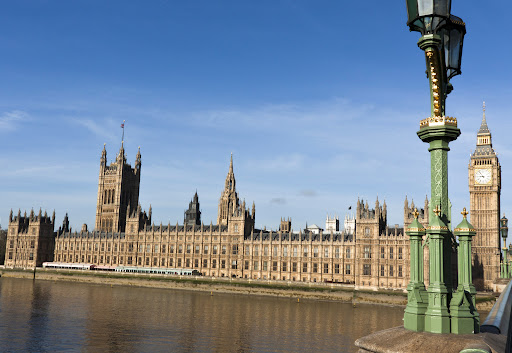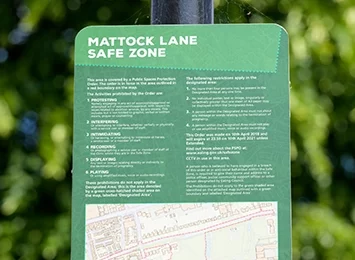Since this blog was published, abortion clinic buffer zones have been signed into law in England and Wales. Click here to read our full statement on the news: Safe access zones around abortion clinics are signed into law in England and Wales
London, 20th September 2022
The right to access essential healthcare in private and without harassment is a fundamental one. Without safe, confidential access, abortion is not equally available to all. In this blog, Louise McCudden – Advocacy and Public Affairs Advisor at MSI Reproductive Choices UK – explains why we advocate for national legislation on abortion clinic buffer zones in the UK.
UK buffer zones: the government has a duty to protect abortion access
Since the repeal of Roe v Wade in the United States, there’s been a resurgence of interest in abortion. We’ve seen a tremendous reaction to the US ruling, with organisations, citizens, celebrities, businesses, and governments around the world rushing to affirm their support for reproductive rights.
The ruling by the US supreme court, which declared there to be no constitutional basis behind the right to abortion, subsequently paved the way for individual states to restrict or completely ban abortion. Unsurprisingly, the ruling was celebrated by anti-choice groups, not only in the US but around the world. Despite being a pro-choice country with relatively liberal laws, there is a small but vocal minority in the UK that does aggressively oppose abortion. That minority has undoubtedly been emboldened by the US ruling – and our clinics are seeing the consequences of that already.
If there was ever a time for the government to show strong leadership on reproductive choice and protect abortion clinics from hostile activity, that time is surely now.
What does anti-choice activity look like in the UK?
In the UK, abortion is generally recognised as healthcare and healthcare is generally regarded as a human right.
With 90% of adults describing themselves as pro-choice and one in three women having an abortion before she is 45, anti-choice campaigners know they are unlikely to ever achieve their goals of preventing abortion through legitimate democratic means. Instead, they resort to harassment, intimidation, misinformation, and manipulation. This often involves standing outside abortion clinics engaging in hostile behaviours designed to coerce women, and indeed others who use our services, out of making their own reproductive choices.
This simply isn’t acceptable. The right to access essential healthcare in private and without harassment is a fundamental one. Without safe, confidential access, abortion is not equally available to all.
How would abortion clinic buffer zones solve the problem?
The government could solve this problem by legislating to establish national buffer zones (or ‘safe access zones’), which protect abortion clinics and hospitals from harassment. Indeed, parliamentarians could do this without waiting for government leadership on the issue. There is cross-party support for national buffer zones. We urge all parliamentarians, regardless of party politics, to vote for any such legislation whenever there is an opportunity to do so, be it in the form of an amendment, a private members’ bill, or something else.
As a leading UK abortion provider, we know very well the impact that buffer zones can have. Our Ealing clinic is now protected by a buffer zone, the first of its kind in the country, and so is our Manchester clinic. Before the buffer zone was introduced, one team member from Ealing said she felt she was “running a gauntlet” every day. And she isn’t the only one. Women, girls, and others attending our clinics have shared many stories over the years, describing a horrifying list of behaviours which range from insults, blockading clinic doors, taking photos without permission, distributing false clinical information, emotional blackmail, and even being redirected away from the premises. No wonder more and more local authorities are deciding that enough is enough and are consulting on whether to introduce buffer zones in their areas.
To create buffer zones, local authorities have been using Public Spaces Protection Orders (PSPOs). At a local level, PSPOs have been extremely effective. However, by ducking national responsibility and leaving the issue at the discretion of local authorities, the government has allowed a postcode lottery to develop.
It cannot be right that if you have an abortion in Ealing, you’re protected from harassment, but if you have an abortion in Leeds, you’re not.
Devolved powers
Across the UK, protection varies even further. In many ways, Scotland and Northern Ireland are further ahead than the UK government on this issue, despite the latter being a nation where abortion was all but completely unlawful until as recently as 2019.
In Scotland, anti-choice activity outside clinics has got so bad that First Minister Nicola Sturgeon recently held a summit to explore solutions. MSI Reproductive Choices was among the summit attendees, and we welcome Sturgeon’s subsequent commitment to taking action.
Meanwhile, in Northern Ireland, Clare Bailey (an assembly member at the time, although she has since lost her seat) sought to establish buffer zones through a private members’ bill. The Abortion Services (Safe Access Zones) (Northern Ireland) Bill passed the Assembly, but it has since been met with legal objections, and was referred by Northern Ireland’s Attorney General, Dame Brenda King, to the supreme court.
The UK government consulted on whether to establish buffer zones in England and Wales back in 2018 but declined to do so. MSI Reproductive Choices UK was one of 30 organisations who wrote to the Home Secretary in 2019, asking her to reconsider. It is difficult not to conclude that the government does not fully grasp the implications of these anti-choice behaviours for reproductive healthcare, for choice, and for women.
If the UK government continues to dismiss calls for national legislation to protect England and Wales, those nations may be left behind Scotland and Northern Ireland, where regional politicians are looking at ways to establish protections.
Most people in the UK are pro-choice, and so are most MPs. Everyone has a right to their own views, and indeed, a right to express them. But regardless of anyone’s personal views about abortion, harassing people, including vulnerable women and girls, at what can be a deeply personal moment, is not a reasonable means of expressing those views.
With reproductive rights under threat around the world, and anti-choice groups feeling emboldened, it has never been more urgent for all political leaders and elected representatives across the UK to take the rise in anti-choice harassment seriously.
Buffer zones are tried-and-tested mechanism to protect women and protect reproductive choice. We call on all our policymakers to support them.
How can you help?
Here are four things you can do:
- Share your story: If you’ve experienced or witnessed any hostile behaviours outside a clinic, whether it was standing and staring, or whether it was aggressive and abusive, we want to hear from you. You don’t need to have had an abortion to share your experience as a witness. You can share your story directly with us, or, if you prefer, you can share your story through Sister Supporter. (Sister Supporter is a network of volunteers who work together to defend abortion access.)
- Ask your MP to vote in support of buffer zones: There have been multiple attempts to legislate on this, usually through private members bills or amendments, and they receive broad cross-party support. It is important for MPs to hear that their constituents support buffer zones. Write to your MP and let them know that whenever there is an opportunity to do so, you’d like them to vote in favour of introducing buffer zones around abortion clinics.
- Find out if there’s a Sister Supporter group in your area and ask them about getting involved locally. You can find out more about them on their website: National — Sister Supporter.
- Support the national BackOff campaign: BackOff is a national campaign supported by British Pregnancy Advisory Service (BPAS), Alliance for Choice, British Medical Association, Brook, End Violence Against Women Coalition, the Faculty of Sexual and Reproductive Health, Rape Crisis England and Wales, the Royal College of Obstetrics and Gynaecologists, the Royal College of Midwives and Women’s Aid, among others. Find out how to support the campaign here: Back Off (back-off.org).
Useful links
To read our other blog ‘Why we advocate for national legislation on abortion clinic buffer zones’ click here.






